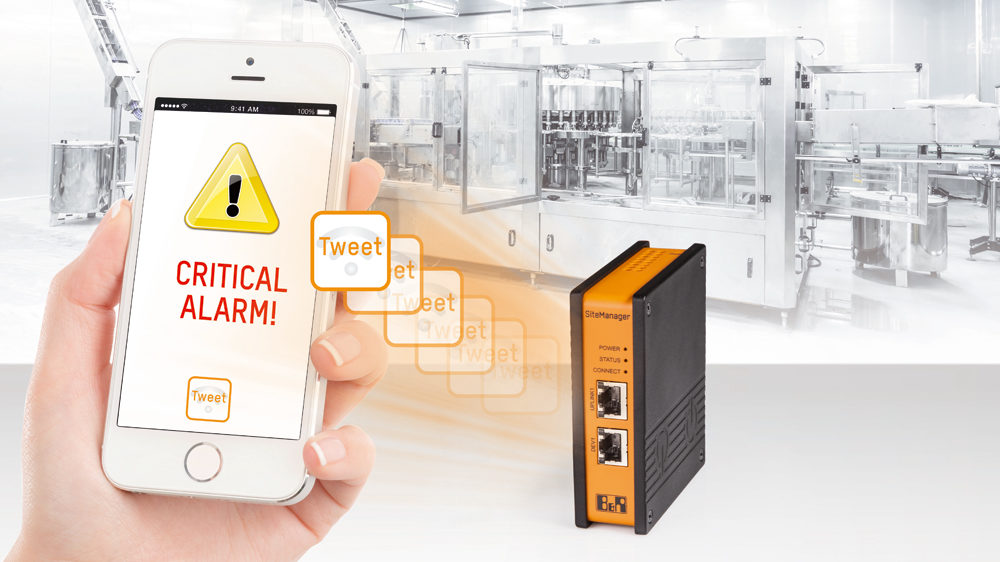Digitalisation in machine tool to empower Indian SMEs
By OEM Update Editorial November 12, 2017 1:22 pm IST
How digitalisation in machine tool manufacturing will empower the Indian SMEs.
Indian government is consistently backing the manufacturing industry and helping Indian SMEs by its various initiatives. Starting with Make-in-India a couple of years back to crafting new policies for Industry 4.0 for Indian manufacturing, the government is continuously empowering Indian SMEs become globally competitive. To benefit from digitalisation, the Indian government is setting up Centre of Excellence (CoE) at various locations in India, which will enable Indian SMEs to visit and realise a proof of concept as a tabletop demo. This is done with a view to help them use innovative technologies and build state-of-the-art machines. The Government of India, at every step has only thought of elevating the Indian manufacturing industry. In the long term, any decision by the government is an aid to manufacturing sector in some way or another.
As per estimates, the machine tools industry in India will reach $ 1 billion by the end of 2017 and SMEs will be the primary beneficiaries. In order for India to be a global manufacturing hub, SMEs will have to adopt advanced machine tool technologies. Sectors like aerospace, defence, medical, electronics, and automobiles have great potential that can be tapped by leveraging digitalisation. Such digitisation in machine tool manufacturing will make the Indian SME environment vibrant and dynamic.
Digitalisation: The next ‘big thing’ for India’s SMEs
Digitalisation is the basic need for any sector or industry to grow, because quality and productivity directly linked to digitalisation. Machine tool manufacturing industry is the biggest contributor to provide quality machinery to any industry.
With increasing trend of digitisation in SMEs will lead SMEs to be a quality supplier but at a very effective cost. “Currently our SMEs are not playing very active role in globalisation but with the effect of digitisation we do force that Indian SMEs will complete in global market with great force,” says Anil Chaudhry, Head Robotics & Solutions, Industrial Automation Business Group, Delta Electronics India.
Connectivity: An integral part of digitalisation
Digitalisation is influencing our lifestyles tremendously. Most of us will have troubles getting through the day, if we forget our phone at home. Simply the idea of having no connectivity is annoying. “Right from searching for hotels, movies to paying bills we bring out our smart phones. There is ideally no sector, which is untouched by digitisation. Connectivity is an integral part of digitalisation. Gaining secure and safe connectivity with one’s machine at an end user site sounds like a dream come true,” says Ninad Deshpande, Head- Marketing, B&R Industrial Automation.
In case of breakdown, with this unparalleled access, it is possible for a machine builder to diagnose his machine and identify error. For the manufacturing unit and the machine builder, it saves valuable production time and cost, which could have been lost while diagnosing the issue and finding a solution.
With Secure Remote Maintenance (SRM) from B&R, Indian SMEs benefit enormously and have a secure 24/7 connectivity to the shop floor. Secure Remote Maintenance provides authorised access and is able to manage the IT and production needs of the manufacturing units effortlessly. With the feature of LogTunnel, the machine builders are able to record machine data to a central database server (log server) in the cloud or on-site. This permanent connection between machine and log server is essential to implementing advanced business solutions such as predictive maintenance and monitoring of machine data and condition parameters. Indian SMEs can benefit from a secure remote programming, secure remote maintenance, secure remote diagnostics and secure remote data logging.
Digital Twin
Digital Twin is another aspect of digitalisation, which can be leveraged by Indian SMEs for faster time to market and reducing development costs. The machine builder usually develops a concept, builds mechanics, and integrates electrical and automation components in the system. At this point, he starts developing the software. Due to this, the software teams get a very short time for development. In case of the need of re-work in mechanics or concept is needed, huge costs are incurred and the deadlines are gone for a toss.
Solutions provided by B&R Industrial Automation
B&R helps machine builders to virtually develop their machines without the need of actual mechanics and electronics with Digital Twin. Automation studio the single tool for programming all B&R components has an inbuilt simulation environment, which enables simulation of controls, I/Os and even motion components. Apart from hardware, software and technology scalability with B&R system, machine builders can simulate the entire electronics even before they receive the hardware and development of this machine software is platform independent. Using Maple Sim and Matlab, machine builders can even simulate the mechanics for dynamic modelling of machines and machine components. This simulation can be then imported in Automation studio, enabling the Indian SMEs to have a simulation environment down to the mechanics. Early testing and virtual commissioning can help keep errors in check despite increasingly complex application code. Simulated control systems linked to virtual machine components make it possible to verify application code long before the first prototype machine goes into operation. Indian SMEs with B&R virtual commissioning can accelerate and streamline the process of commissioning the actual machine. It will minimise risk and ensure that project deadlines and quality targets are met reliably.
B&R provides complete solutions for machine builders and factory operators for becoming completely digitalised. B&R serves as an ideal partner for a successful Industrial IoT implementation.
Reduces complexity and increases transparency
Manufacturing is witnessing the fourth evolution, and I4.0 is being talked together with IoT and certainly both these are highly connected to the manufacturing space and digital manufacturing of tomorrow. “With the rapid evolution of the electronics and the control systems, today there ‘pulse’ monitoring of any equipment remotely similar to a patient monitoring in the ICU,” says Pradeep Patil, Managing Director, TRUMPF India (Pvt) Ltd.
Today there is so much information available of every aspect of equipment and process that if the manufacturer is enabled to leverage this information with context to his business (small or big) would only mean incremental bottom line for his business and available for business opportunities. Thus all this which can be summed up as ‘Digitalisation’ is no more disruptive rather imperative for higher productivity and flexibility in a small or bigger size of manufacturing set up. It also reduces complexity and increases transparency within all the processes. It is about increasing the awareness of latent potential of the investments to be capitalised. “We at TRUMPF with our TruConnect and AXOOM would like to help our customers, through our application and services, be adopters of the new reality that is here to stay,” claims Patil.
Equally important for organisation success
Sanjib Chakraborty, Country Head, Hurco India Pvt Ltd says, “Like automation and robotised machine, digitalisation is also equally important to improve efficiency of the organisation as a whole. It is more effective for SMEs as execution and practicing the digitalised system will be much easier for SMEs with compare to large scale industry. Earning margin become challenging now days. The household sentence ‘saving is earning’ become a mantra in every organisation – especially for SME.” Digitalisation can monitor and control to zero down the waste (MUDA) more efficiently and accurately. There are many software and hardware that is being used to control the waste. In machine tool, improving up-keep time is very important. Hurco has designed much such software to monitor the efficiency of the machine. EFS (extended shop floor) are one of the software which monitor, diagnose and service the machine remotely.
Services provided by IDS Technologies
The company’s automation offerings are twofold; firstly, process automation (production process) and secondly business process automation (BPA). They provide automation solutions (batching software) for production of concrete, precast concrete, AAC bricks, asphalt or bitumen, and dry mortar. They are also getting ready to automate aggregate production through crushers.
The company also takes up custom automation requirements of end users in construction industry.
“Our business process solutions are purely software applications for ready mix business starting from catering to basic needs to more complex 100 per cent automation of entire business process,” claims Umesh Mukkannavar, Managing Director, IDS Technologies India Pvt Ltd.
“Our business process automation products can be adopted to precast or block making, asphalt, AAC and aggregate segments as well,” Mukkannavar states.
Can improve flexibility
India’s domestic machine tool sector is SME-driven. The demands for Hi-tech machines are increasing and it is imperative for SMEs to adopt digitalisation. “Digitalisation will enable the machine tool industry to respond faster to the needs of the market, increase their flexibility to meet customer’s demands as well as indigenously develop products efficiently, “says V. Anbu, Director General & CEO, IMTMA.
Digital data has made life simpler
Nitin Wakode, Associate Vice President PSG, Onward Technologies Ltd says “With digital information involved the immediate actions can be taken to maintain the delivery schedules as well as quality and functional requirements. Each and every equipment or computer or tabs handling any of the data has to be connected to internet. The availability of digital data has made life simpler for everyone in manufacturing cycle.”
The digitalisation is a need of the moment, regardless of industry, irrespective of domain. Digitalisation enables the speed yet accuracy the crucial most elements for any manufacturing procedures. “So when it comes to SMEs, these entities can save humongous amount of time and cost while manufacturing. In small proportions, it can generate good savings in long run,” says Maulik Patel, Executive Director, Sahajanand Laser Technology Ltd.
Helps to meet international quality standards
“Digitisation will help SMEs in the machine tool industry to enhance their efficiency and productivity, lower production costs, address on-ground issues, minimise manufacturing defects, and lessen production time,” says Sydney Quadros, OEM Pipe Head, Industry Business Schneider Electric. He adds, “Therefore, this will not only help them meet international quality standards but also strengthen their position as competent suppliers for the global market. Digitisation has the potential to channelise SMEs growth and help them chart an entirely new growth gradient.”
Solutions and services by Schneider Electric
Schneider Electric’s offerings in the automation domain help businesses to optimise operations, budget and asset life cycle through improved performance, increased safety, and reduced maintenance costs – This is made possible with Schneider Electric’s Eco Structure for machines.
The key offerings include: Industrial Automation and Electrical distribution solutions and services. The Industrial automation services further include modernisation and upgrades, industrial cyber security, safety, maintenance and support design, engineering and execution, training and learning. Schneider Electric has a complete end-to-end portfolio of products and solutions thanks to Eco Structure for machines.
Currently our SMEs are not playing very active role in globalisation but with the effect of digitisation we do force that Indian SMEs will complete in global market with great force.
Anil Chaudhry, Head Robotics & Solutions, Industrial Automation Business Group, Delta Electronics India
Connectivity is an integral part of digitalisation. Gaining secure and safe connectivity with one’s machine at an end user site sounds like a dream come true.
Ninad Deshpande, Head- Marketing, B&R Industrial Automation
‘Digitalisation’ is no more disruptive rather imperative for higher productivity and flexibility in a small or bigger size of manufacturing set up. It also reduces complexity and increases transparency within all the processes.
Pradeep Patil, Managing Director, TRUMPF India (Pvt) Ltd
Our business process solutions are purely software applications for ready mix business starting from catering to basic needs to more complex 100 per cent automation of entire business process.
Umesh Mukkannavar, Managing Director, IDS Technologies India Pvt Ltd
Like automation and robotised machine, digitalisation is also equally important to improve efficiency of the organisation as a whole.
Sanjib Chakraborty, Country Head, Hurco India Pvt
Digitalisation will enable the machine tool industry to respond faster to the needs of the market, increase their flexibility to meet customer’s demands as well as indigenously develop products efficiently.
V. Anbu, Director General & CEO, IMTMA
With digital information involved the immediate actions can be taken to maintain the delivery schedules as well as quality and functional requirements.
Nitin Wakode, Associate Vice President PSG, Onward Technologies Ltd
Digitisation will help SMEs in the machine tool industry to enhance their efficiency and productivity, lower production costs, address on-ground issues, minimise manufacturing defects, and lessen production time.
Sydney Quadros, OEM Pipe Head, Industry Business Schneider Electric
Digitisation will help SMEs in the machine tool industry to enhance their efficiency and productivity, lower production costs, address on-ground issues, minimise manufacturing defects, and lessen production time.
Sydney Quadros, OEM Pipe Head, Industry Business Schneider Electric
The digitalisation is a need of the moment, regardless of industry, irrespective of domain. Digitalisation enables the speed yet accuracy the crucial most elements for any manufacturing procedures.
Maulik Patel, Executive Director, Sahajanand Laser Technology Ltd
Cookie Consent
We use cookies to personalize your experience. By continuing to visit this website you agree to our Terms & Conditions, Privacy Policy and Cookie Policy.


















